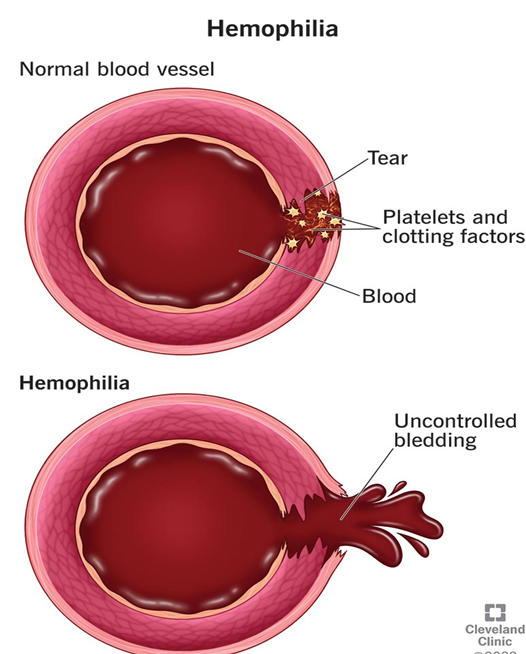When caring for a child with probable appendicitis, the nurse would be alert to recognize which condition or symptom is a sign of perforation?
Decreased abdominal distention
Anorexia
Bradycardia
Sudden relief from pain
The Correct Answer is D
Choice A reason:
Decreased abdominal distention is not typically a sign of appendicitis perforation. In fact, perforation often leads to increased abdominal distention due to the release of intestinal contents into the abdominal cavity, causing inflammation and swelling. Therefore, this choice is incorrect.
Choice B reason:
Anorexia, or loss of appetite, is a common symptom of appendicitis but not specifically indicative of perforation2. While anorexia can be present in cases of perforation, it is not a definitive sign. The sudden relief of pain is a more critical indicator of perforation, as it suggests the appendix has ruptured, temporarily relieving pressure.
Choice C reason:
Bradycardia, or a slow heart rate, is not a typical sign of appendicitis perforation. In fact, appendicitis and its complications, such as perforation, are more likely to cause tachycardia (an increased heart rate) due to pain and infection. Therefore, this choice is incorrect.
Choice D reason:
Sudden relief from pain is a classic sign of appendicitis perforation. When the appendix ruptures, the pressure inside the appendix is relieved, leading to a temporary decrease in pain. However, this is followed by a rapid onset of severe pain as the contents of the appendix spread throughout the abdominal cavity, causing peritonitis. This sudden change in pain is a critical indicator that the appendix has perforated and requires immediate medical attention.
Nursing Test Bank
Naxlex Comprehensive Predictor Exams
Related Questions
Correct Answer is D
Explanation
Choice A reason:
Infants do not outgrow clubfoot when they learn to walk. Clubfoot is a congenital deformity that requires medical intervention to correct. Without treatment, the condition can lead to significant disability and difficulty in walking1. The goal of treatment is to correct the foot’s position and function, allowing the child to walk normally.
Choice B reason:
Surgical intervention is not the first line of treatment for clubfoot. While surgery may be necessary in severe cases or if other treatments fail, the initial approach typically involves non-surgical methods. The Ponseti method, which includes serial casting and gentle manipulation, is the preferred initial treatment. Surgery is considered only if these methods do not achieve the desired results.
Choice C reason:
Traction with foot manipulation is not a standard treatment for clubfoot. The primary non-surgical treatment involves the Ponseti method, which includes serial casting and gentle manipulation of the foot3. This method has been shown to be highly effective in correcting clubfoot without the need for traction.
Choice D reason:
Frequent serial casting is the first line of treatment for clubfoot. The Ponseti method, which involves weekly casting and gentle manipulation of the foot, is the most widely used and effective treatment for clubfoot. This method gradually corrects the foot’s position over several weeks, followed by bracing to maintain the correction4. Serial casting is preferred because it is non-invasive and has a high success rate.
Correct Answer is B
Explanation
Choice A reason:
Basketball, while a popular sport, involves a significant amount of physical contact and the risk of falls and injuries1. For children with hemophilia, engaging in contact sports can increase the risk of bleeding episodes and joint damage. Therefore, basketball is not the most recommended sport for children with hemophilia.
Choice B reason:
Swimming is highly recommended for children with hemophilia because it is a low-impact sport that provides excellent cardiovascular exercise without putting undue stress on the joints. The buoyancy of the water supports the body, reducing the risk of injuries and bleeding episodes. Swimming also helps improve muscle strength and flexibility, which can be beneficial for overall health and well-being.

Choice C reason:
Soccer, like basketball, involves a lot of running, physical contact, and the potential for falls and injuries. These factors make soccer a less suitable sport for children with hemophilia, as it can increase the risk of bleeding and joint damage. Therefore, soccer is not the most recommended sport for children with hemophilia.
Choice D reason:
Skating, whether roller skating or ice skating, carries a risk of falls and injuries. While it can be a fun and enjoyable activity, the potential for accidents makes it less suitable for children with hemophilia. The risk of bleeding episodes and joint damage is higher with activities that involve a significant risk of falls.
Whether you are a student looking to ace your exams or a practicing nurse seeking to enhance your expertise , our nursing education contents will empower you with the confidence and competence to make a difference in the lives of patients and become a respected leader in the healthcare field.
Visit Naxlex, invest in your future and unlock endless possibilities with our unparalleled nursing education contents today
Report Wrong Answer on the Current Question
Do you disagree with the answer? If yes, what is your expected answer? Explain.
Kindly be descriptive with the issue you are facing.
